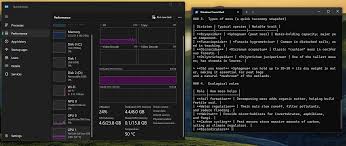
Introduction
In recent years, the technology landscape has been significantly impacted by advancements in artificial intelligence (AI) and open-source software (OSS). One of the latest developments in this realm is GPT OSS, an open-source version of the Generative Pre-trained Transformer (GPT) model. Understanding GPT OSS is crucial as it not only democratizes access to AI technology but also sparks discussions about innovation, ethics, and collaboration in the tech community.
The Emergence of GPT OSS
GPT OSS has gained attention after developers and researchers have made strides toward providing the benefits of large language models to a broader audience. The original GPT models developed by OpenAI demonstrated exceptional capabilities in natural language processing, leading to their adoption in various applications, including chatbots, content creation, and customer service. However, with access largely restricted to proprietary models, many in the developer community sought to create open equivalents.
One notable contribution to the field is “GPT-Neo” and “GPT-J” developed by EleutherAI, which have emerged as popular alternatives to OpenAI’s models. These projects have not only facilitated research and experimentation but also allowed organizations and startups with limited resources to build AI-driven applications tailored to their specific needs.
Key Developments and Initiatives
Recent collaborations among tech companies, research institutes, and independent developers have accelerated the growth of GPT OSS. For instance, partnerships between major players in the AI community are helping in curating datasets, improving model architectures, and developing user-friendly interfaces. Furthermore, communities such as Hugging Face have created repositories for various GPT OSS models, making it easier to access, use, and contribute to these projects.
The Importance of GPT OSS
The significance of GPT OSS stretches beyond technical capabilities; it addresses critical issues of accessibility and transparency in AI development. By making powerful AI tools available to a diverse range of users, GPT OSS fosters innovation and creativity in technology sectors often overlooked by large corporations. Moreover, it encourages a collaborative environment, where sharing knowledge and resources can lead to more robust and ethical AI systems.
Conclusion
As the open-source community continues to embrace developments like GPT OSS, the future of AI looks promising and inclusive. By leveraging the power of open collaboration, we can expect the emergence of more efficient and ethical AI applications in various fields, including healthcare, education, and entertainment. For technology enthusiasts and professionals, understanding and engaging with GPT OSS is essential for staying ahead in an ever-evolving digital landscape. It’s a testament to how community-driven efforts can lead to breakthroughs that benefit society at large.



